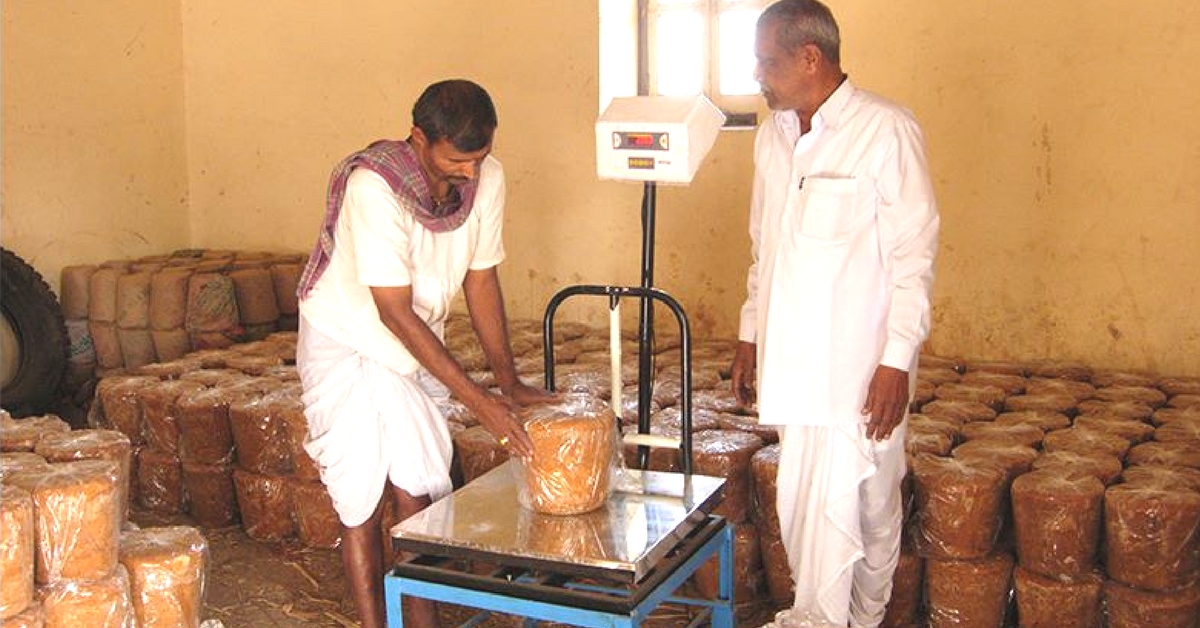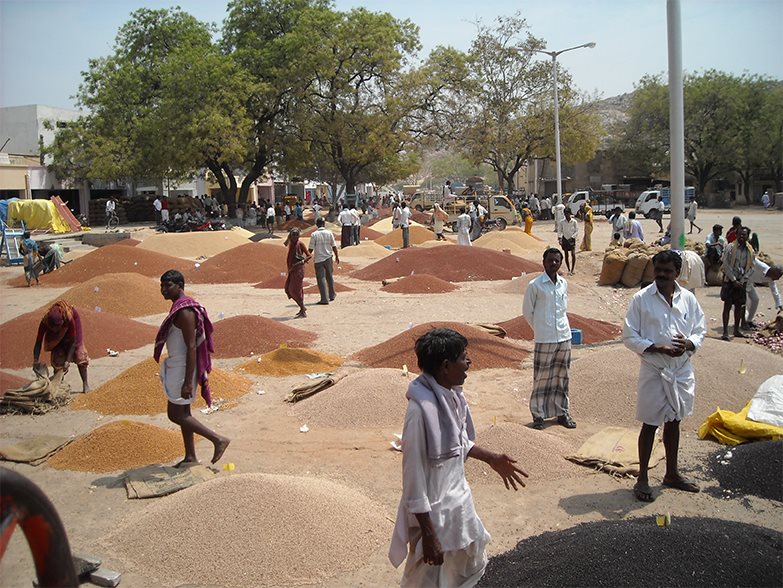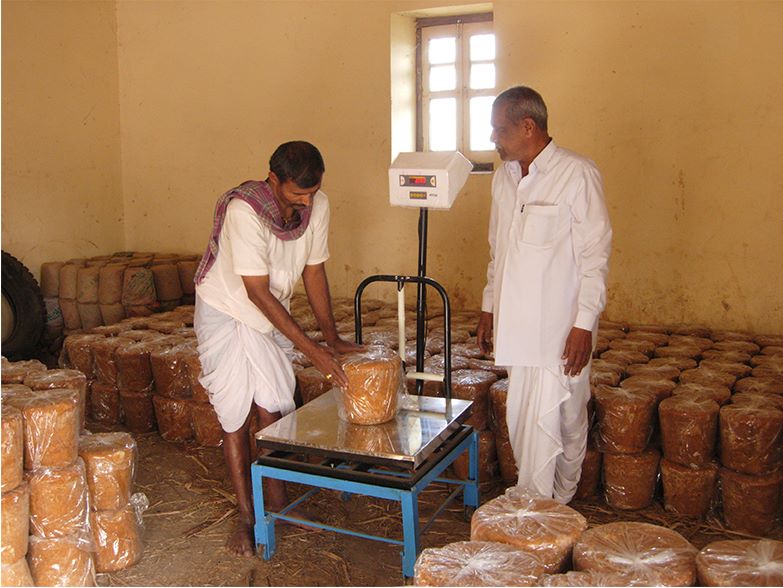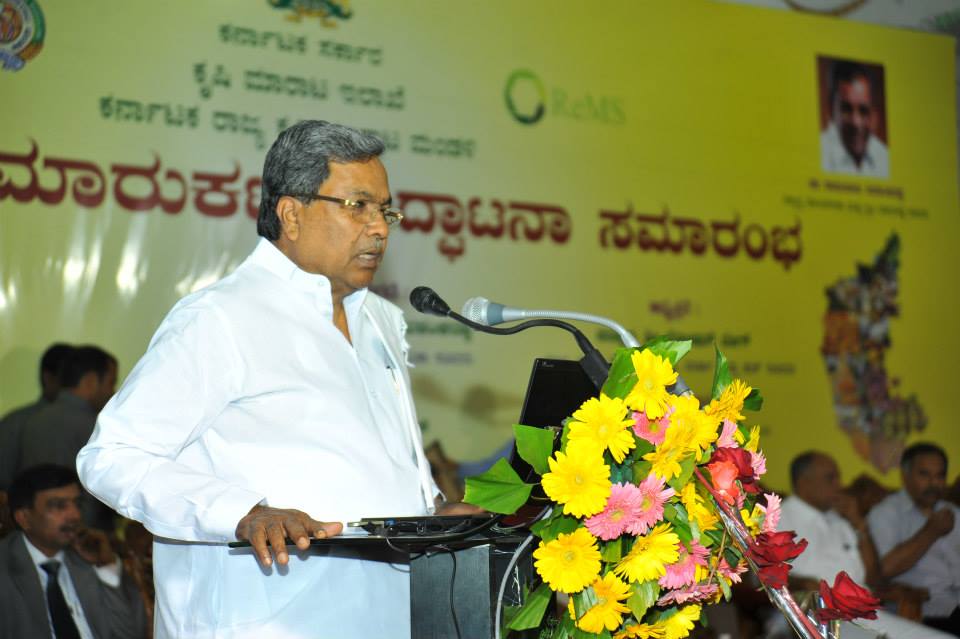More Money, Better Options: How Karnataka’s E-Trading Is Changing Farmer Lives
Even Prime Minister Narendra Modi has showered praise on the Karnataka government’s Rashtriya e-Market Services.

Recent protests by farmers across the country have boiled down to one major issue—lack of remunerative prices for agricultural commodities. Most of the public discourse is concentrated on minimum support prices offered by the government. Beyond the scope of MSPs, however, what governments need to really embark is on a transformational reform of the Agriculture Produce Market Committees or the benighted mandi system. Amongst all the reforms targeted at APMCs, it’s the Karnataka government’s Rashtriya e-Market Services, which has arguably stood out.
Prime Minister Narendra Modi even showered praise on the ReMS, when he launched the Centre’s National Agriculture Market (NAM) portal in April 2016. The very idea of e-NAM, the Union Agriculture Minister said came from Karnataka’s experience with ReMS. “We took all state agriculture ministers on a visit to Karnataka to learn how the State has linked 40 – 50 markets through e-trading platform. Everywhere there is an electronic display of the prices of produce in all other markets. Farmers can thus opt to sell at a place where he can fetch the best price,” he said.
“Even NITI Aayog has appreciated this for the reason that this has enhanced the income of the farmers by 38%,” says the 2018 Karnataka State Budget.

In its original avatar, the old mandi system restricts the free movement of farm produce and thus limits a farmer’s ability to bargain for a better price. So, what is the ReMS? Built on a joint venture between the Karnataka government and NCDEX e Markets Ltd, ReMS is an attempt to take the old mandi system online, where farmers have the option of selling to a greater array of buyers and acquiring a better price for their produce. It has managed to electronically link 157 out of the 162 APMCs in the State through a single licensing system. As a result, the State government claims that this has created a unified market platform (UMP) which covers the entire state.
“Till now about Rs 75,690 crore worth agricultural produce of 95.21 lakh farmers have been traded online. So far, about 47.28 lakh farmers are registered under the unified market platform,” said the 2018 Karnataka State Budget.

For the 47.28 lakh farmers registered onto the ReMS, their bank account details are also uploaded to facilitate faster payment for their produce. “APMCs in Karnataka charge 1.5% as mandi fee and 2% as commission agents fee for each transaction taking place in mandis from traders through ReMS while it charges 0.1% fee as transaction cost,” says this Financial Express report.
In order to get more price for the produce of farmers, the Karnataka government is looking to set up quality analysis laboratories in 25 selected Agricultural Produce Marketing Committees for pulses, oilseeds and food grains and will be subjected to quality analysis. For this scheme, the State government will allocate Rs.2.5 crore at Rs.10 lakh for each committee.
Read also: Karnataka Farmers Now Can Go Hi-Tech to Spray Fungicide on Their Trees
So how does the system work for the average farmer? Farmers arrive at the mandi, where he is given an entry slip with his name and mobile number generated on it. The farmer has the option of either putting up his produce for auction via a commission agent or selling it directly to a buyer of his choice. “Before the agricultural produce is offered for sale, a professional assaying service provider will assay the produce against the standardized quality parameters, which will be displayed on the online market platform. The name of the commodity, quantity, lot number, assayed quality parameters values will be displayed on the platform,” says the ReMS website. These certificates issued by the assayer are audited by a third party at any random time.
Once this process is completed, the farmer receives an SMS detailing the highest price quoted for his produce, which he can choose to accept or not. If he does accept the price, the system generates a bill for the buyer and the sum is either paid in case or transferred directly into their bank accounts. “If the price offered is not acceptable to the farmer they have to inform the concerned commission agent within the prescribed time. In turn, the commission agent will upload the same to the UMP and will drop the sale of such produce.
The same will be offered for sale on the next day,” says ReMS.

Major corporate players in the agro and food processing industry like ITC, Reliance, Godrej Agro, and Cargill, among 13 other bulk institutional buyers are registered with the ReMS, thus reducing the distance between the farmer and the buyer. Despite the success of this initiative, certain structural concerns remain. The stated aim of this venture is to get rid of the middleman and establish direct connection between the consumer/retailer and the farmer.
However, considering the quantity of produce and the logistics involved in the distribution process, farmers have little option but to depend on middlemen (commission agents and traders) who continue to take a slice of the income that they receive for their produce. “Let’s not confuse e-market with online trading. The trader is making the payment to the commission agent who is taking it to the farmer in the e-market system too. The hundreds of intermediaries or commission agents who take most of the cut in this process are still in the frame,” says a State official to Mint.
Read also: This Techie-Turned-Farmer Has Many Useful Tips
Another issue with the current system is the lack of cold storage facilities for perishable produce. Considering their short shelf life, certain fruits and vegetables are still out of the ambit of the APMC, and thus not a beneficiary of the ReMS. “We need to build a robust supply chain with cold storage facilities, warehousing and alternative markets that can prevent agents from conning farmers,” says APMC director Rajesh Gowda, to the Economic Times.
These are teething problems that continue to persist. Having said that, this is an initiative heading in the right direction.
Like this story? Or have something to share? Write to us: [email protected], or connect with us on Facebook and Twitter.
NEW: Click here to get positive news on WhatsApp!
If you found our stories insightful, informative, or even just enjoyable, we invite you to consider making a voluntary payment to support the work we do at The Better India. Your contribution helps us continue producing quality content that educates, inspires, and drives positive change.
Choose one of the payment options below for your contribution-
By paying for the stories you value, you directly contribute to sustaining our efforts focused on making a difference in the world. Together, let’s ensure that impactful stories continue to be told and shared, enriching lives and communities alike.
Thank you for your support. Here are some frequently asked questions you might find helpful to know why you are contributing?


This story made me
-
97
-
121
-
89
-
167













